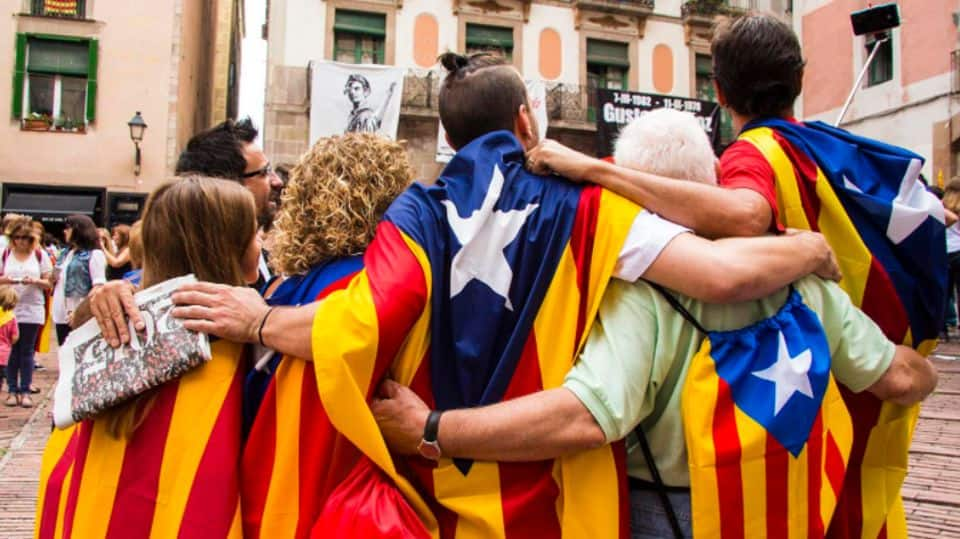
Catalan crisis: Sacked ministers put behind bars
What's the story
Spain seems to be making no concessions for pro-independence supporters even as the constitutional crisis over Catalan independence deepens. Now, a Spanish court has remanded 8 former-Catalan ministers in custody. Prosecutors are also trying to get a European arrest warrant against the recently removed Catalan President Carles Puigdemont and other ministers. The court order triggered mass protests in Barcelona. What's next for Catalan's leaders?
Background
What was the Catalan independence referendum?
On October 1, Catalan leaders held a referendum in defiance of Madrid to ascertain whether its population backed independence from Spain. 90% of 2.2 million voters, who amounted to 40% of Catalonia's population backed independence. Madrid deployed its police forces to forcibly prevent voting. The crackdown left 900 people injured. Numerous anti-Spain protests erupted afterward, with organizations including FC Barcelona backing Catalan independence.
27 Oct 2017
Catalan Parliament declares independence from Spain
On October 27, Catalonia's regional parliament voted in favor of independence from Spain, ahead of a Spanish Senate vote to seize Catalan's autonomous powers. Seventy Catalan lawmakers voted for independence while 10 opposed. Opposition members walked out before the vote in protest. Earlier, Spanish PM Mariano Rajoy had said that direct rule was necessary to return "law, democracy, and stability" to Catalonia.
28 Oct 2017
Spanish PM dissolves Catalan parliament after independence declaration
On October 28, Spanish PM Mariano Rajoy dissolved the Catalan parliament after MPs voted to declare independence from Spain. Rajoy, had earlier warned Catalonia that Madrid would move to suspend the region's autonomy. He dismissed Catalan President Carles Puigdemont and his cabinet. The Catalan crisis erupted after its leaders defied a Constitutional Court ruling to hold an independence referendum.
Who?
Who are the implicated ministers?
Eight former ministers, including: Oriol Junqueras (vice-president), former interior minister Joaquim Forn( interior minister), Carles Mundó (justice minister), Raül Romeva (foreign affairs minister), Dolors Bassa (labour minister), Joseph Rull (sustainable development minister) were detained. Further, prosecutors have asked for European arrest warrants (EAW) against these sacked ministers: Meritxell Serret (agriculture), Antoni Comin (health), Lluis Puig (culture) and Clara Ponsati (education).
Puigdemont speaks
What does Puigdemont say?
Along with his cabinet members, Puigdemont has been charged with offenses, including sedition, rebellion, and misuse of funds. Speaking from Brussels recently, Puigdemont said he was neither seeking Belgian asylum nor running from justice. He said that he would return to Spain if Madrid provides certain guarantees and that his colleagues would be granted a fair trial.
Conclusion
What next?
If an EAW is issued, Belgian authorities will decide upon arresting and returning Catalan officials to Spain after the paperwork is reviewed and appeal options are exhausted. This could take up to 60 days. Belgian authorities may reject the warrant over possible human rights violations of the suspects. Meanwhile, Spain's central bank has warned that the deepening crisis would push Catalonia towards a recession.